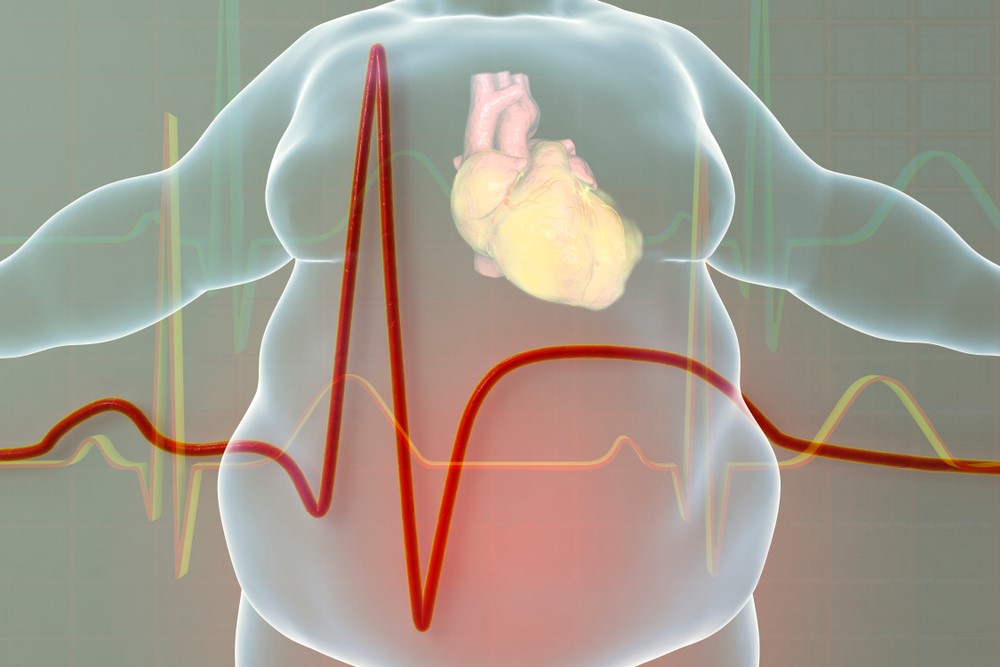People who are obese are at higher risk of developing many diseases and serious health problems compared to people who are of a healthy weight. Diseases caused by obesity are considered a great threat to mankind in the new century.
The latest reports from the World Health Organization show that at least one in three of the world’s adult population is overweight, and almost one in 10 is obese. In addition, more than 40 million children under the age of five are overweight.
Being overweight or obese can have a serious impact on your health. Carrying excess fat leads to serious consequences such as cardiovascular diseases (mainly heart disease and stroke), type 2 diabetes, musculoskeletal disorders such as arthritis and some cancers (endometrial, breast and colon) and ultimately premature death and disability.

different types of diseases caused by obesity are as follows:
Psychosocial problems
Being overweight may cause humiliation and decrease a person’s self-confidence. This humiliation occurs in education, employment, health care and elsewhere. Studies show that obese people who go to obesity treatment centers to lose weight have many abnormalities in their social life. The more severe obesity is, the more these disorders are. It seems that obese women are more prone to suffering from psychological and social problems than obese men.
Type 2 diabetes
One of the diseases caused by obesity is type 2 diabetes. Unlike type 1 diabetes, where the body produces little or no insulin, people with type 2 diabetes produce insulin, but their bodies are unable to use it. This problem leads to an increase in blood sugar, which itself can cause damage to the body’s organs and tissues. Obesity and genetics are considered to be the main factors in the onset of type 2 diabetes.
However, contrary to popular belief, obesity-related type 2 diabetes can be treated through lifestyle changes and dietary control. Surgery is one of the common methods to control obesity in these people.
sleep apnea
Sleep apnea is another disease caused by obesity. Although there are many different causes of sleep apnea, obesity is the most common cause in adults. During sleep, the muscles of the throat and tongue are relaxed, and the soft tissue of the mouth and throat can cause airway obstruction. This condition results in periods of 10 seconds or more of airway obstruction where the person stops breathing. This cessation leads to frequent awakenings during the night, cardiovascular diseases and early death.
Losing weight reduces the amount of soft tissue that can block the airway during sleep and in this way controls this type of disease caused by obesity. It also allows a person to move more easily during sleep apnea and open the airway. For these two reasons, there will be little chance of a person experiencing long periods without breathing in the absence of oxygen.
high blood pressure
A quarter of high blood pressure cases in men and women are caused by weight gain. When adipose tissue prevents the heart and blood vessels from pumping blood properly, a person’s blood pressure increases. The heart also has to work harder to pump blood throughout the body, which makes the person susceptible to cardiovascular diseases.
Diseases of bones, joints, muscles, connective tissue
Osteoarthritis is one of the diseases caused by obesity, which increases significantly in overweight people. Osteoarthritis in the knees and ankles may be directly related to the weight these joints bear. However, osteoarthritis in other joints suggests that excess weight can damage cartilage and bone by mechanisms that alter the metabolism.
Nonalcoholic fatty liver disease (NAFLD) and nonalcoholic steatohepatitis.
The incidence of non-alcoholic fatty liver disease (NAFLD) is increasing and has become one of the most common causes of liver disease worldwide. This NAFLD disease is considered one of the risk factors for developing gastrointestinal tumors, especially liver cancer. Obesity is an important risk factor for the onset of NAFLD. Abnormal fat accumulation, including visceral obesity and fatty liver, leads to adipose tissue dysfunction, which in turn increases pro-inflammatory cytokines and other health-related problems. Therefore, non-alcoholic fatty liver disease is one of the diseases caused by obesity.
Gallbladder diseases
When the body mass index or BMI is less than 24 kg/m2, the incidence of symptomatic gallstones is approximately 250 per 100,000 person-years. But the formation of stones gradually increases as BMI increases to 30 and increases sharply when BMI exceeds 30 kg/m2.
The reason for increasing the risk of developing gallstones with weight gain is the increase in cholesterol circulation in the blood. When total body fat increases, circulating cholesterol also increases. Cholesterol production is linearly related to body fat. Approximately 20 milligrams of extra cholesterol is made for every kilogram of excess body fat. Therefore, an increase of 10 kg of body fat leads to the daily synthesis of the same amount of cholesterol as there is in the yolk of an egg. Increased cholesterol is also excreted in the bile. The high concentration of cholesterol compared to bile acids and phospholipids in bile increases the possibility of cholesterol gallstone deposition in the gallbladder. So, as you can see, another disease caused by obesity is gallstones.
Of course, you should consider that during weight loss, the possibility of gallstones increases, because the flow of cholesterol through the biliary system increases and is excreted. Diets with moderate levels of fat, which cause the gallbladder to contract and empty its cholesterol, may reduce this risk. Similarly, if there is an increased risk of gallstone formation, the use of bile acids such as ursodeoxycholic acid may be recommended.
Other diseases caused by obesity
In addition to the mentioned complications, there are correlations between breast, uterus, esophagus, pancreas and obesity. The higher the patient’s BMI and the longer it stays high, the more likely the complications from obesity will be.
On the other hand, the sooner people can lose weight and maintain body mass index, the less complications they will suffer.
Get help from the best slimming specialist for advice in this field.
Conclusion
Diseases caused by obesity are very widespread. Some are directly linked to obesity, and others appear to increase with weight gain. Obesity is associated with psychosocial problems, type 2 diabetes, sleep apnea, cancer, breathing problems, high blood pressure, and gallstones.




